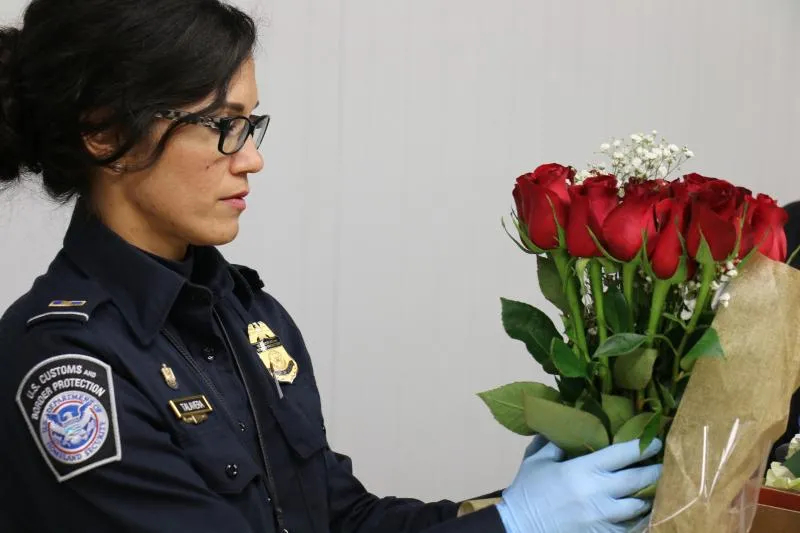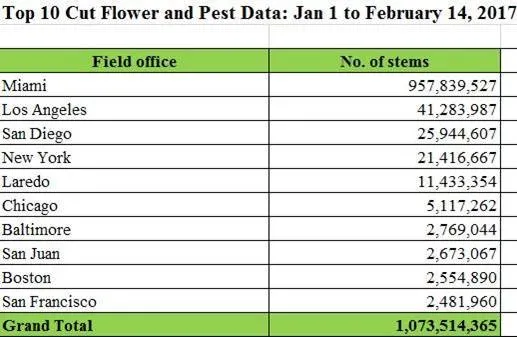MIAMI— Flowers are the most popular gift item during the yearly celebration of Valentine’s Day, but they could also be the hiding place for dangerous pests.

entering the country are safe, even one
hitchhiking pest or plant disease can
cause significant damage.
U.S. Customs and Border Protection (CBP) highly-trained agriculture specialists diligently examine hundreds of millions of cut flower imports at Miami International Airport arriving from South America in time for Valentine’s Day each year. While the vast majority of flowers entering the country are safe, even one hitchhiking pest or plant disease can cause significant damage.
“CBP agriculture specialists in Miami play a vital role before Valentine’s Day celebrations and are the first line of defense against destructive pests,” said CBP Miami International Airport Port Director Christopher Maston. “The extraordinary dedication and unwavering commitment of CBP’s workforce inspecting cut flower imports is key to protecting American agriculture.”
During the 2017 Valentine’s Day season from January 1st to February 14th, CBP agriculture specialists nationwide intercepted 823 actionable pests and processed more than 1 billion cut flower stems.
Miami International Airport ranks first among United States ports of entry for shipments of cut flower imports with approximately 89 percent of fresh-cut flowers nationwide, followed by Los Angeles. During the 2017 Valentine’s Season, CBP’s Miami Field Office inspected over 957,839,500 million stems of cut flowers.

Jan. 1 to Feb. 14 2017
Most imported cut flowers are imported from Colombia and Ecuador into Miami.
Traditionally, Valentine’s Day and Mother’s Day are times when CBP agriculture specialists are very busy inspecting floral arrangements. For more information and photos on how CBP protects our resources see CBP.gov 's Protecting Agriculture section.
Download footage and imagery of cut flower inspections through the Defense Video Imagery Distribution System (DVIDS) and CBP Flickr.
U.S. Customs and Border Protection operations in Florida include travel and trade facilitation and securing over 1,200 miles of the coastal border. To follow the latest CBP enforcement efforts in Florida, visit @CBPFlorida on Twitter.

